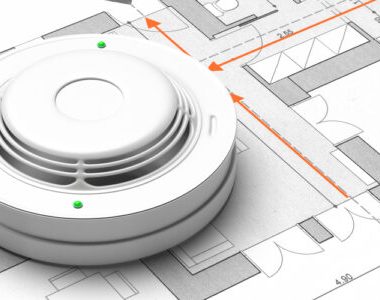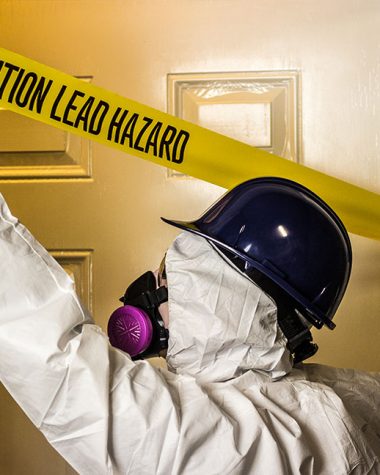Common Electrical Code Violations to Avoid
In today’s modern world, electricity is a necessity. Without it, our lives would become a lot more difficult. That’s why it’s so important to follow electrical codes and regulations. If not, you could be putting your home and your family at risk.
When it comes to electrical installations and repairs, it’s essential to hire a qualified electrician. They know the ins and outs of the electrical safety codes and will ensure that everything is up to scratch.
What are Electrical Safety Codes and Regulations?
Electrical safety codes are rules that electricians and other professionals must adhere to in order to ensure the safety of their customers. These regulations cover the design, construction, and installation of electrical equipment. They also address safety features such as ground fault circuit interrupters (GFCIs).
Common Electrical Code Violations to Avoid
Every state and jurisdiction has their own set of electrical safety regulations, so it’s important to make sure you are following them. Here are some of the most common electrical code violations and how to avoid them.
1. Failing to Ground Equipment Correctly
One of the most common electrical code violations is failing to ground equipment correctly. All electrical devices must be properly grounded in order to prevent the risk of electric shock. This means that the electrical device must be connected to the ground in order to provide a safe path for electricity to dissipate.
2. Using Incorrect Wire Sizing
Using the wrong wire size can be a serious hazard. Electrical wires come in a variety of different sizes and must be selected based on the amount of current being carried by the wire. If the wire size is not large enough for the current, it can overheat and cause a fire.
3. Overloading Circuits
Overloading circuits is another common violation of electrical codes. Circuit breakers are designed to protect the wires in your home by tripping when they become overloaded. If you plug too many devices into one outlet, the breaker will trip and cut off the power in order to prevent a fire.
4. Improper Use of Extension Cords
Another violation of electrical codes is the improper use of extension cords. Extension cords are a convenient way to connect devices that are not close to an outlet, but they can also be a fire hazard if not used properly. Extension cords should never be used as a substitute for permanent wiring, and they should never be overloaded.
5. Failure to Use Weatherproof Outlets
Weatherproof outlets are an important safety feature, especially in areas that are exposed to weather or dampness. These outlets are designed to protect the electrical device from moisture and keep you from getting shocked. If you don’t use these types of outlets, you could be at risk of an electrical shock.
Conclusion
These are just a few of the most common electrical code violations that you should avoid. By following the proper safety guidelines and hiring a qualified electrician to handle electrical work, you can make sure that your home and family are safe from electrical hazards. Remember, when it comes to electrical safety, it’s better to be safe than sorry. Make sure you’re avoiding these common electrical code violations to keep your home and family safe.
What are the most common electrical code violations in residential homes?
1. Improper GFCI protection – GFCI outlets are important for preventing electrocution, and should be installed in any area of a house where water is present, or where electrical products could come into contact with water.
2. Improper installation of grounding systems – Every circuit should be equipped with a permanent and continuous ground fault interrupter (GFCI) protection device, and it should also have a separate and dedicated grounding conductor.
3. Not labeling circuits – In order to ensure that the circuit that needs service can be quickly identified by an electrician, it is important to label the panel, breaker, and conductor.
4. Using the wrong gauge wire – Using the correct gauge wire for the application is critical for safety and efficiency.
5. Unprotected wiring in hazardous areas – Any wiring that is exposed to extreme temperatures or direct contact with water should be protected. For example, all wiring exposed to areas around a tub or shower should be enclosed in appropriate conduit.
6. Inadequate light fixtures – Installation of light fixtures should always be completed in accordance with the National Electical Code and local electrical codes. When installing fixtures, it is important to use the correct type and number of bulbs, and to use the correct size of wire and conduit.
7. Outdated wiring – The electrical system in a residence should comply with all local codes. If a home was originally wired more than 40 years ago, it is a good idea to update the wiring to meet current safety standards.
What penalties can be associated with electrical code violations in residential homes?
1. Fines: Depending on the jurisdiction and violation, fines can range from hundreds to thousands of dollars.
2. Cease and Desist Orders: The structure may be declared unsafe and all electricity shut off until corrections are made.
3. Imprisonment: Poorly done or egregiously flagrant electrical code violations can lead to jail time in certain extreme cases.
4. Compliance Orders: Inspectors may impose a compliance order requiring the homeowner to bring an installation in compliance with the code within a certain timeline.
5. Re-inspection Fees: The homeowner may be responsible for the fees associated with the re-inspection, if applicable.
“What type of inspections are necessary to ensure compliance with electrical code requirements in residential homes?”
1. Circuit breaker inspections
2. GFCI outlet inspections
3. Smoke detector inspections
4. Electrical motor inspections
5. Panel board inspections
6. Electrical grounding inspections
7. Electrical bonding inspections
8. Electrical wiring inspections
9. Arc fault inspections
10. Lighting inspections




